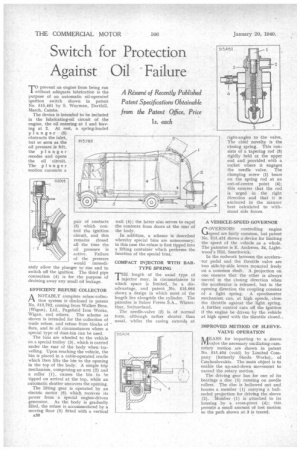All Operators Must Accept Responsibilities
Page 40

If you've noticed an error in this article please click here to report it so we can fix it.
By R. P. Bailey,
Secretary, National Road Transport Employers. Federation, London and Home Counties Haulage Contractors Association
'WHAT matters is the future—the W past is of significance.only in so far as we are able to learn the lessons it can teacn us. The most important to be learned from 1938 is how much more can be done by co-operation between the three national organizations---the measure of ajreernent has been greater than ever before and the industry has benefited in consequence. Indeed I cannot think of a single .matter of major importance for which the entire credit could fairly be claimed by any one organization.
But what of 1939? During the coming year, I am convinced that, to borrow an apt phrase from across the Atlantic, " the industry has a rendezvous with destiny."
Very shortly the Road Haulage. Wages Act will be in effective operation and we can look forward to the early disappearance from the sphere of controversy of that vexed question of wages. This, more than any other factor will, I am sure, help to put competition on a fair and equitable basis and will consequently assist materiallyin the production of a rates structure. Moreover, I earnestly hope that the Act will contribute to a greater appreciation of the fact that. capita? and Labour are partners in a common enterprise—the interests 'of neither are mutually exclusive and each is equally entitled to a fair deal.
Collaboration by Road and Rail.
The beginning of the New Year finds us face to face with an issue which is vital to the future of the industry—the railway application for freedom in charges. It would he imprudent of me at this stage to comment on the negotiations now taking place, hut whatever their outcome may be I sincerely hope that the ultimate result will be closer collaboration between public road carriers and the railway companies. Competition which is aimed at securing a quantum of traffic without regard for the suitability of the medium for the nature of the traffic, constitutes to my mind the height of human folly. On the other hand, a healthy rivalry which has as its object the provision of " adequate alternative facilities " connotes an entirely different outlook which cannot fail to be beneficial to the well-being of the community as a whole.
The railways and the public road carriers constitute two important branches of the public-carrying industry and the importance or their collaborating is so obvious that in ,a totalitarian state it would be achieved by compulsion. We have the opportunity of showing what can voluntarily be accomplished in a democratic country. The coming year will, I hope. see further progress made with the work of the Liaison Committee on Rates. No subject can be more spectacular in its appeal to the industry, yet no work can be more Arduous than that of those who are devoting their energies to the creation of a road rates structure.
The Minister of Transport himself stated in the House that real progress is being made with what is admittedly a difficult problem. It would be foolish to under-estimate the immensity of the task or to ignore questions which must be settled before any rates structure can become operative. It would, however, be equally foolish to take the view that the difficulties are so great that nothing can be done. With the setting up of local Liaison Committees the rank and file of the industry have their opportunity, and I hope that during the coming year the lively co-operation of the rank and file will be well in evidence.
Greatest Need a United Front.
I have, so far, made only the briefest of references to a few of the major issues with which we shall be confronted this year, but what little I have said surely indicates what I regard as the greatest need of the public road carrying industry to-day—a united front. This would give to our views the force which must inevitably he lacking so long as the industry's organization continues in its present form.
Whether it be by merger or by working in closer co-operation, I earnestly hope that during this 1939 some means will be found for providing a medium for the unified expression of the ,views of the professional road carrier.
In conclusion, I would say that the lnclustry's success during 1939 depends to a very large extent upon the realization by the rank and file of their responsibilities.




















































































